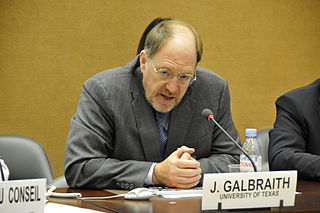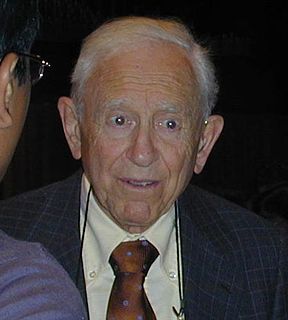A Quote by George Stigler
All great economists are tall. There are two exceptions: John Kenneth Galbraith and Milton Friedman.
Quote Topics
Related Quotes
I don't think that much change comes from economists. I think it comes more from political realities. Probably the two giants of the 20th century, who actually did shift government policy in the U.S. and around the world, were John Maynard Keynes and Milton Friedman. I don't see anybody in our system who is at that level of influence.
I can't resist telling you that when the Vienna Economics Institute celebrated its centennial, many years ago, they invited, as their keynote speaker, my father [John Kenneth Galbraith]. The leading economists of the Austrian school- including von Hayek and von Haberler - returned for the occasion. And so my father took a moment to reflect on the economic triumphs of the Austrian Republic since the war, which, he said, "would not have been possible without the contribution of these men." They nodded - briefly - until it dawned on them what he meant. They'd all left the country in the 1930s.
Even as I pursued a doctorate in the history of ideas in my native Denmark, I realized I had neither the encyclopedic training nor the passion for cool logic - not to mention the nerve - to follow in the footsteps of classical liberal philosophers and economists such as Robert Nozick, Friedrich Hayek, and Milton Friedman.
Some years ago John Kenneth Galbraith wrote in an essay on his efforts at writing a history of economics: 'As one approaches the present, one is filled with a sense of hopelessness; in a year and possibly even a month, there is now more economic comment in the supposedly serious literature than survives from the whole of the thousand years commonly denominated as the Middle Ages ... anyone who claims to be familiar with it all is a confessing liar.' I believe that all physicists would subscribe to the same sentiments regarding their own professional literature. I do at any rate.
When I heard the book (Thomas Friedman's latest) was actually coming out, I started to worry. Among other things, I knew I would be asked to write the review. The usual ratio of Friedman criticism is 2:1, i.e., two human words to make sense of each single word of Friedmanese. Friedman is such a genius of literary incompetence that even his most innocent passages invite feature-length essays.


































